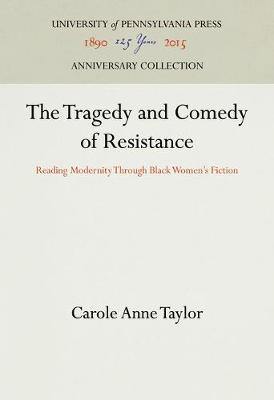Penn Studies in Contemporary American Fiction
1 total work
Carole Anne Taylor explores the network of cultural relations that links tragic and comic theory to views of what can or cannot be known or felt and what can or cannot be done. Reconceiving tragic and comic resistance through readings of works by Toni Morrison, Alice Walker, Gloria Naylor, Toni Cade Bambara, and South African-born Bessie Head, she demonstrates how these writers elaborate the interconnections between a comedy that affirms wholesome normalcy in the face of terror and a tragedy that finds something terribly wrong in the social order itself. Paradoxically, she contends, these works place the highest value not on texts, reading, and writing, but on actual relationship and social action.
Looking backward, Taylor next does a "recursive reading" of some problematic works by William Faulkner, Gertrude Stein, and Zora Neale Hurston that have often been considered precursors of the "postmodern." Reading these earlier authors under the influence of contemporary texts and current theory explains modern artfulness or its lack, even when representations of the terrible and the funny offer conflicted relations to power and conflicted sites for readerly response.
Taylor argues that the ellipsis of certain tragic and comic modes, particularly in theories of how and when the modern becomes the postmodern, corresponds to the repression of intercultural dialogue on a broader scale. Throughout, she makes a strong case that the tragedy and comedy of resistance should lie at the heart of theories of a critical (post)modernity—and can illuminate the connections between how to read and how to live in the world.
